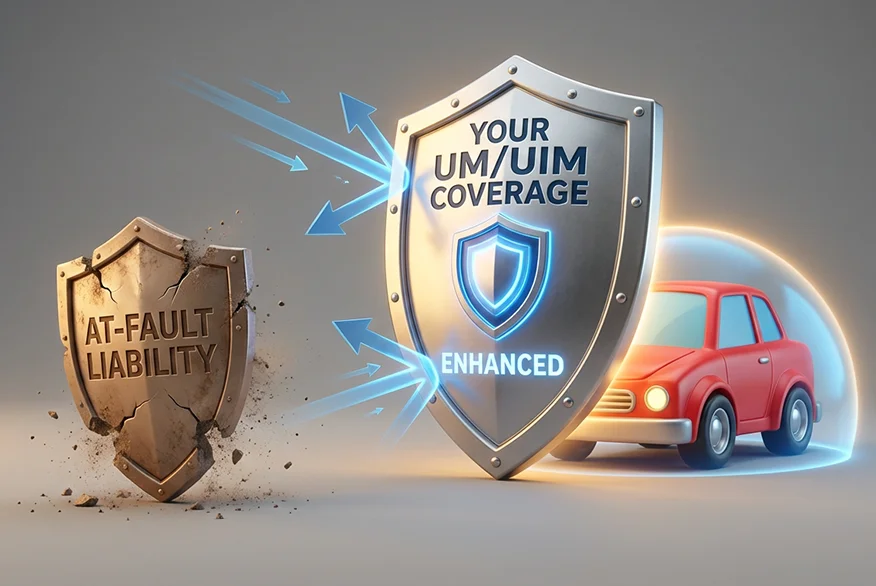Guiding You Through Your VA Disability Process After Denial: Securing the Benefits You Earned
At SG Legal Group, we recognize the immense sacrifices made by our nation's veterans. Serving your country often comes with lasting physical and mental health challenges. The Department of Veterans Affairs (VA) offers disability compensation – tax-free monthly payments – as a way to acknowledge and provide support for conditions that arose from or were worsened by your military service.
Navigating the VA disability claims process can feel overwhelming, filled with complex forms, evidence requirements, and deadlines. Understanding the fundamentals is the first step toward securing the benefits you have rightfully earned. SG Legal Group is here to serve as your dedicated partner, providing knowledgeable guidance and unwavering support throughout your initial application journey. We are committed to helping veterans like you access the full range of benefits available.
Are You Eligible for VA Disability Benefits?
Eligibility for VA disability compensation hinges on meeting specific criteria related to your health condition, your military service, and the connection between the two.
Core Eligibility Criteria
Fundamentally, both of the following must be true :
- You have a current illness or injury (referred to by the VA as a "condition") that affects your body or mind.
- You served on active duty, active duty for training, or inactive duty training.
Establishing Service Connection
Beyond the core criteria, you must demonstrate that your condition is "service-connected." This means establishing a link between your current disability and your time in the military. At least one of the following must be true:
- In-Service Connection: You became sick or were injured while serving in the military, and your current condition is directly linked to that illness or injury.
- Pre-Service Aggravation: You had an illness or injury before you joined the military, and your service made that condition worse.
- Post-Service Connection: You have a disability that is related to your active-duty service, but it did not become apparent until after you separated from service.
Understanding Presumptive Conditions
In certain situations, the VA simplifies the process by "presuming" that specific conditions are automatically service-connected if you served in particular locations or circumstances. This means you don't need to provide medical evidence directly linking your service to the condition; you only need to show you meet the service requirements for the presumption. This is particularly relevant for veterans exposed to specific hazards or environments during their service. Key categories of presumptive conditions include :
- Certain chronic (long-lasting) illnesses that appear within one year after discharge (e.g., hypertension, arthritis, diabetes).
- Illnesses caused by contact with contaminants or hazardous materials (e.g., Agent Orange, asbestos, Camp Lejeune water contamination, burn pits under the PACT Act).
- Illnesses associated with time spent as a Prisoner of War (POW).
The list of presumptive conditions has expanded significantly over time, notably with legislation like the PACT Act, which broadened eligibility for veterans exposed to burn pits and other toxins. This expansion acknowledges the long-term health consequences of certain military exposures, removing a significant barrier for veterans who previously struggled to prove a direct link between their service decades ago and a current illness. Keeping informed about these presumptive lists is vital, as they can open pathways to benefits that might have been previously inaccessible.
Gathering Crucial Evidence (The "Must-Haves")
The strength of your claim depends heavily on the evidence you provide. While VA has a duty to assist in gathering certain records, being proactive is key. Essential evidence includes:
- DD214 or other Separation Documents: Proof of your service dates, character of service, and military occupation.
- Service Treatment Records (STRs): Your official medical records from your time in service. If you have copies, submit them.
- VA Medical Records: Records from any treatment received at VA hospitals or clinics.
- Private Medical Records: Reports, test results, and notes from non-VA doctors, hospitals, or clinics where you've received treatment for your claimed condition(s). You will likely need to submit these yourself or provide the VA with authorization (VA Form 21-4142/21-4142a) to request them on your behalf.
- Nexus Statements/Medical Opinions: A statement from a qualified medical professional linking your current disability to a specific event, injury, or illness during your service. This is often critical, especially for conditions not on a presumptive list.
- Lay Evidence (including "Buddy Statements"): Written statements from you (personal statement), your spouse, family members, friends, or fellow service members who have knowledge of your condition, the in-service event, or how the condition affects your daily life. These are valuable for documenting symptoms over time or incidents not recorded in official files. VA Form 21-10210 can be used for buddy statements.
Understanding Disability Ratings
If the VA grants service connection, it will assign a disability rating from 0% to 100%, in 10% increments. This rating reflects the severity of your condition and its impact on your average earning capacity. The rating determines the amount of your monthly tax-free compensation payment. If you have multiple service-connected conditions, the VA uses a specific formula often called "VA Math" or the "Whole Person Theory" to calculate a combined disability rating; the individual ratings are not simply added together. Your combined rating might be lower than the sum of your individual ratings. Higher ratings result in higher monthly payments, and payments may also increase if you have dependents (spouse, children, dependent parents) and your combined rating is 30% or higher.
Veterans whose service-connected conditions prevent them from maintaining substantially gainful employment may be eligible for Total Disability based on Individual Unemployability (TDIU). TDIU allows veterans to be paid at the 100% rate, even if their combined disability rating is less than 100%.
Common Mistakes & Pitfalls to Avoid
Simple errors can unfortunately lead to delays or denials. Be mindful of these common pitfalls:
- Delaying Filing: Waiting too long can complicate proving service connection and potentially reduce the amount of back pay received.
- Incomplete or Inconsistent Information: Failing to fully complete forms or providing conflicting details can raise red flags.
- Missing Deadlines: This is the most common pitfall and can dramatically affect the amount of back-pay you receive.
- Lack of a Current Diagnosis: You must show that the condition currently exists.
- Insufficient Medical Evidence: Not providing enough detail about the severity of your condition or failing to submit relevant treatment records.
- Missing Nexus: Failing to provide a medical opinion linking the current disability to military service (essential for non-presumptive conditions).
- Not Understanding Rating Criteria: Not being aware of how the VA evaluates the severity of your specific condition based on regulations.
- Over-Reliance on VA: While the VA has a Duty to Assist, veterans who actively participate in gathering and submitting evidence often have stronger claims.
How SG Legal Group Can Assist You
Challenging VA denials can be intricate, but you don't have to face it alone. SG Legal Group is dedicated to helping veterans successfully navigate their claims. Here’s how we can help:
- Navigating Complexity: We understand the VA's rules, regulations, and procedures, and we can simplify the process for you, explaining each step clearly.
- Ensuring Completeness & Accuracy: Our team meticulously reviews your filings to prevent common errors and ensure all necessary information is included and consistent.
- Strategic Evidence Development: We help you identify and gather the most impactful evidence, including crucial service records, VA and private medical records, and compelling lay statements. We can advise on what review lane will be most advantageous for your situation.
- Strengthening Your Claim: We work with you to obtain strong medical nexus opinions from qualified professionals, linking your condition to your service. We also assist in crafting detailed personal statements that effectively communicate the onset and impact of your disability. We ensure the VA understands the true severity of your condition. We can also help challenge opinions from VA examiners, ensuring that all medical opinions comply with the law.
- Representation and Communication: As your appointed representative (using VA Form 21-22a for attorneys ), we can manage communications with the VA on your behalf, track your claim status, and respond to any VA requests promptly. While Veterans Service Organizations (VSOs) provide valuable free assistance , an accredited attorney from SG Legal Group can offer in-depth legal strategy, personalized attention, and robust evidence development, including connecting you with medical experts if needed – particularly beneficial for complex claims






